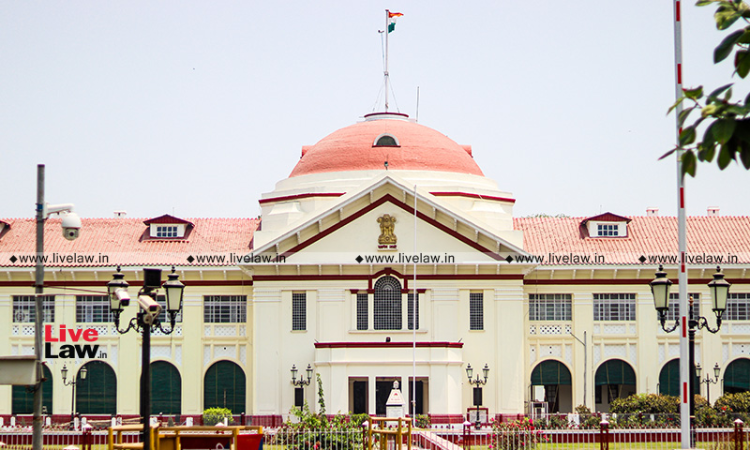- Home
- /
- High Courts
- /
- Patna High Court
- /
- Patna High Court Acquits Father-Son...
Patna High Court Acquits Father-Son Duo In 1999 Kidnapping Case; Cites Unexplained Delay In FIR, Non-Examination Of IO
LIVELAW NEWS NETWORK
6 Oct 2025 4:45 PM IST
In a significant ruling, the Patna High Court has set aside the conviction and 10-year sentence imposed on Ram Prasad Yadav and his son Ajay Kumar Yadav under Section 364 of the Indian Penal Code (IPC) for the alleged kidnapping of the informant's son in 1999. The appeals (Criminal Appeal (SJ) No. 229 of 2004 and No. 240 of 2004) were allowed, discharging the appellants from their bail...
In a significant ruling, the Patna High Court has set aside the conviction and 10-year sentence imposed on Ram Prasad Yadav and his son Ajay Kumar Yadav under Section 364 of the Indian Penal Code (IPC) for the alleged kidnapping of the informant's son in 1999. The appeals (Criminal Appeal (SJ) No. 229 of 2004 and No. 240 of 2004) were allowed, discharging the appellants from their bail bonds.
Case Background
The case stems from Murliganj P.S. Case No. 74 of 1999, registered on June 21, 1999, based on the informant's (PW-2, Shiv Nandan Yadav) written report. The informant alleged that on June 4, 1999, at around 4:00 PM, appellant Ram Prasad Yadav lured his son, Rakesh Kumar Yadav @ Baba Ji, away from home on the pretext of urgent work. Later, appellant Ajay Kumar Yadav was seen heading towards Pratapnagar with the victim. When the victim did not return, the informant searched for him and claimed to witness co-accused Sukal Yadav forcing the victim onto a Rajdoot motorcycle at gunpoint (a 'three-nut'), with Ajay seated behind.
The kidnappers allegedly proceeded towards the village Rajni on two motorcycles, with three unidentified persons on the second one. The informant claimed the incident was witnessed by PW-1 (Ramesh Kumar Yadav), PW-3 (Badri Yadav), PW-4 (Vedanand Yadav), and others. A Panchayati was held where Ram Prasad allegedly admitted to the kidnapping and promised recovery, leading the informant to wait 3-4 days. On June 8, 1999, he learnt the victim had been killed.
The trial court (Additional Sessions Judge, Madhepura) in Sessions Trial No. 93 of 2001 convicted the appellants under Section 364 IPC on March 26, 2004, sentencing them to 10 years' rigorous imprisonment on March 29, 2004.
High Court's Reasoning
Justice Alok Kumar Pandey, in the judgment dated September 20, 2025, acquitted the appellants, holding that the prosecution failed to prove the case beyond a reasonable doubt.
Unexplained Delay in FIR
It was stated that the incident occurred on June 4, 1999, but the FIR was lodged on June 21, 1999—a delay of 17 days. The Court noted this delay afforded opportunity for embellishments and fabrications. It was stated that the informant's claim of waiting due to Panchayati assurances was contradicted in his Section 164 CrPC statement.
Non-Examination of Investigating Officer (IO)
It was stated that the IO was not examined, causing serious prejudice. This omission prevented verification of the place of occurrence, motorcycle details (e.g., number plates), and contradictions in witness statements. Relying on Behari Prasad v. State of Bihar ((1996) 2 SCC 317) and Syed Ibrahim v. State of Andhra Pradesh ((2008) 10 SCC 601), the Court held that the place of occurrence was not established, vitiating the prosecution's case.
Inconsistencies in Witness Testimonies
Court ntoed that all five prosecution witnesses were examined, but their statements were shaky and hearsay-based. PW-2 (informant) claimed to be an eyewitness but contradicted himself on Panchayati and source of information. PW-1 admitted learning of the kidnapping second-hand and informing PW-2, despite FIR naming him as an eyewitness.
PW-3 (informant's samdhi) gave contradictory statements on his presence and police inquiry; he was a chance witness assisted by the informant. PW-4 did not implicate the appellants and learnt of the murder later and PW-5 turned hostile, it was noted.
Most witnesses were relatives/interested, and independent witnesses (e.g., Ganesh Yadav, Surendra Yadav) have not been examined on behalf of the prosecution.
Violation of Section 313 CrPC
Court noted that incriminating circumstances (e.g., luring the victim, motorcycle details) were not specifically put to the appellants during their examination, amounting to a serious irregularity.
Hearsay and Lack of Corroboration
It was further stated that the prosecution's story relied on hearsay evidence and no sanha entry was made, and other miscreants remained unidentified. The Court rejected the State's argument that minor contradictions were natural, emphasising the evidence's unreliability.
Conclusion
The High Court thus concluded that the prosecution's version was "deceptive and concocted," with the delay used to fabricate evidence. The impugned judgment was set aside, and the appellants were acquitted.
(Case Title: *Ram Prasad Yadav vs The State of Bihar* and connected appeal)



